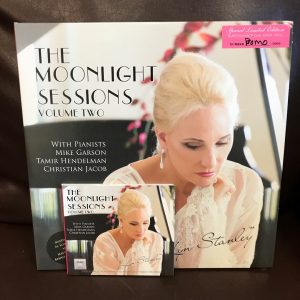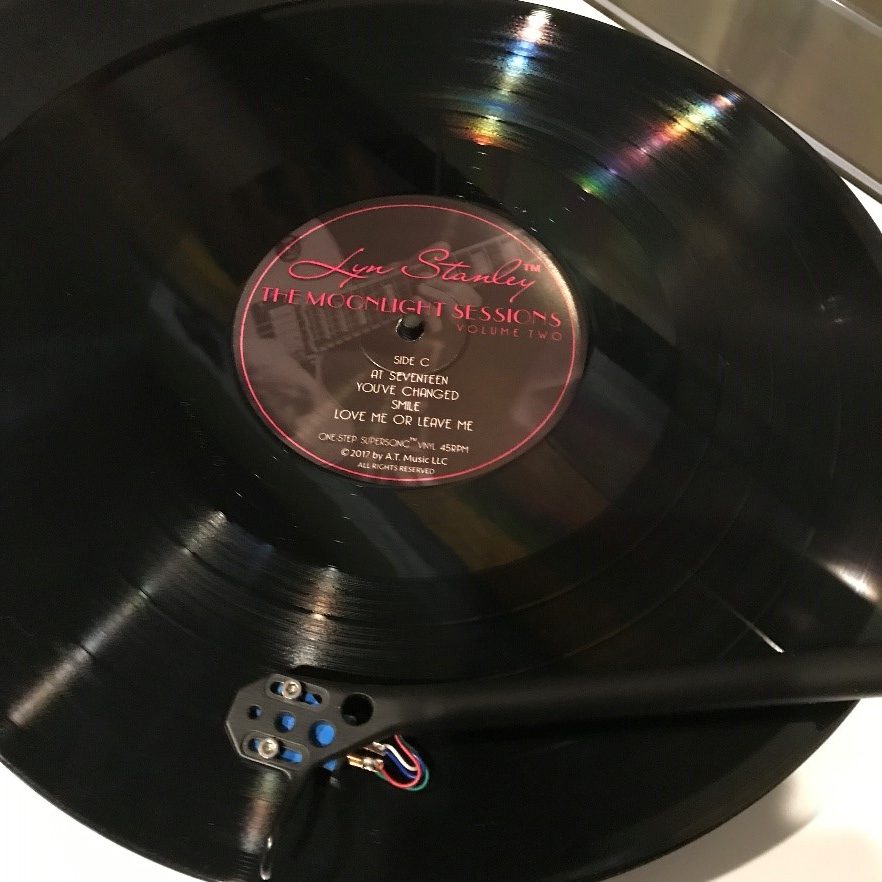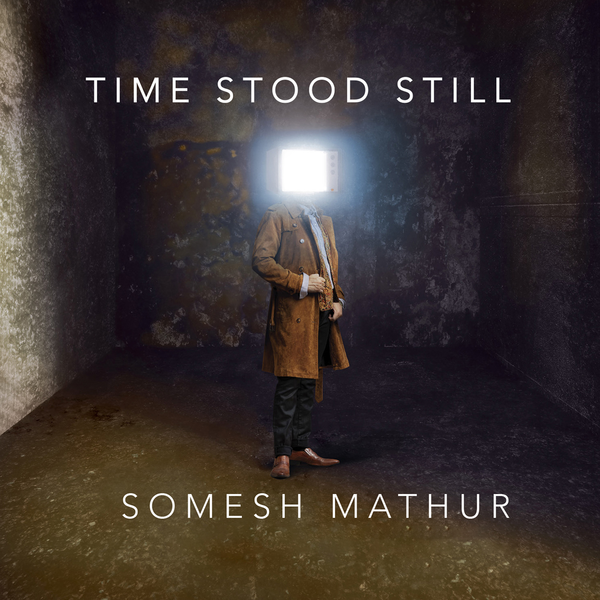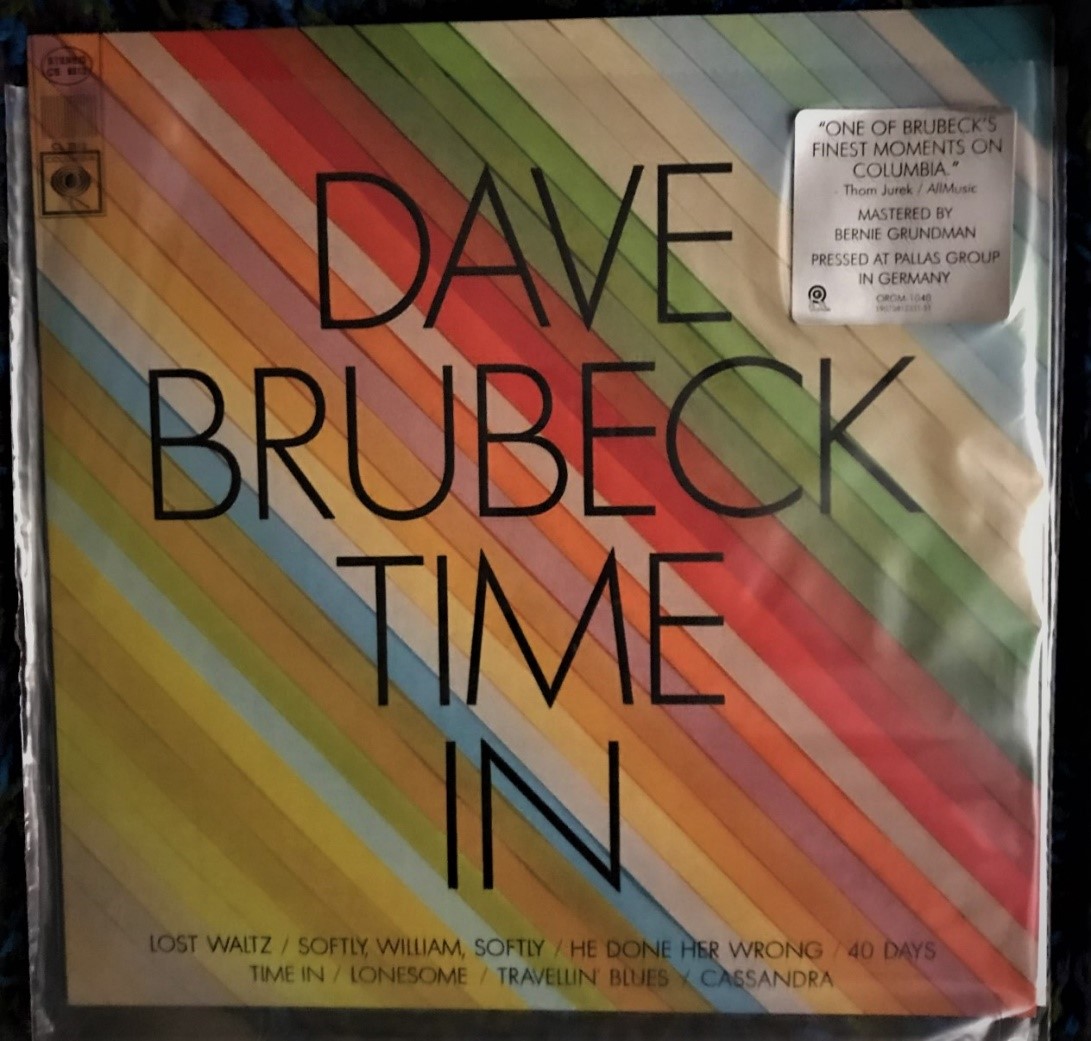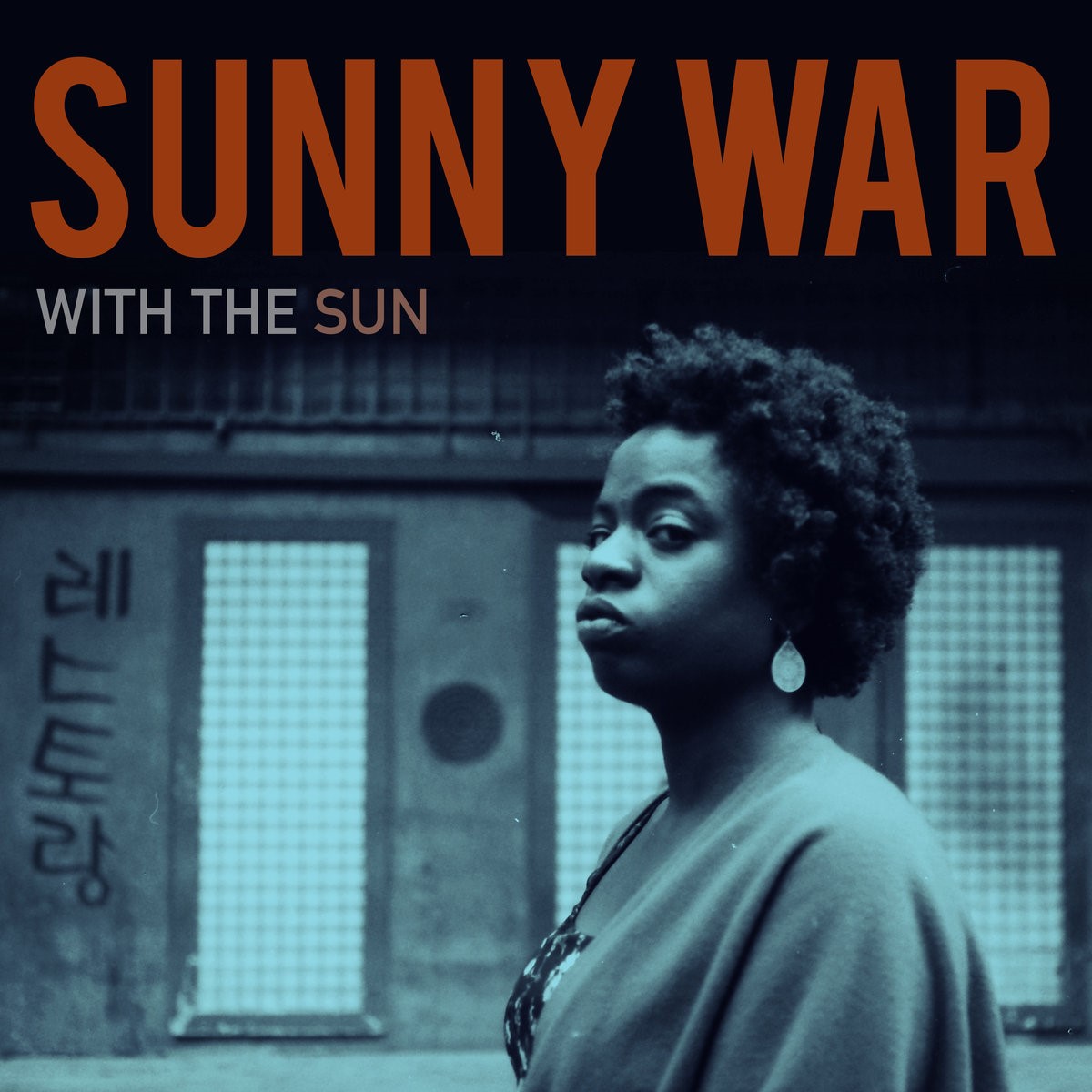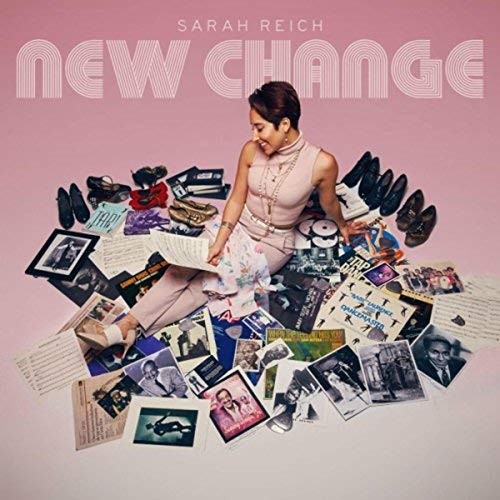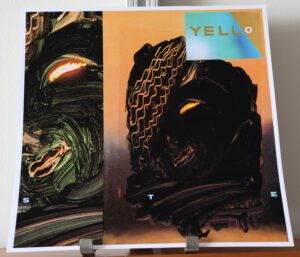Lyn Stanley's The Moonlight Sessions, Vol. 2 (A.T. Music LLC 3106, 2-LP set $125, CD/SACD $29.98, http://www.lynstanley.com)
"Other than that, I think her voice is incredibly sexy and inviting. It's much closer to London than too-cool-for-school Krall and for that reason I'll be more than happy to bring this to all future trade shows. Unless, of course, I get a hold of one of those LPs."
Last August I reviewed Lyn Stanley's first volume of The Moonlight Sessions for my blog. While I gave it a positive review, I was a little disappointed to review it in the CD/SACD hybrid format since everyone at this year's AXPONA was demoing it on both LP and reel-to-reel. (Stanley was also said to be wandering through the corridors, so everyone wanted to be in the position of saying "Hey everyone, look who just walked into our room!") The CD sounded terrific, of course, but any singer who becomes an instant darling of the high-end audio industry should be heard on the best playback system and formats possible—you know, so we can all say "Wow!" together.
Someone listened. A few weeks after I posted that review on my blog, a big flat package—my favorite kind—arrived in the mail. It contained both the LP and the CD/SACD hybrid disc of Vol. 2. The LP was the "Limited Special Edition," which means it's a 45rpm 2-record set. You know what that means…A/B comparison time!
I listened to the LP first, and here's what happened. I loved it. At first listen, Vol. 2 seemed so much better than Vol. 1. There's more imagination in the songs, especially in the way Stanley mashes up two themes into one such as adding a few bars of Clair de Lune into a heartfelt version of "Over the Rainbow." (Is there any version that's not heartfelt?) That's a recurring theme—an all-star cast of producers and arrangers (Mike Garson, Christian Jacob, John Chiodini, Steve Rawlins, Doug Walter, and Tamir Hendelman, along with Stanley) are mixing song standards with lyrical interludes from Beethoven, Chopin, Debussy, and Mozart. We even get a touch of Miles Davis with "How Deep Is the Ocean?" These pairings are concocted by very thoughtful musicians.
My first thought was that my analog bias had stepped into the room with a big clompy pair of old Doc Martens. "You probably would have had the same reaction to Vol. 1 if you had heard the album first," I told myself. There's only one problem with that suggestion—I've been listening to the CD as well and I'm still experiencing the same set of emotions. If you compare the two formats side by side, the LP sounds a little bigger all around as if Stanley was three or four inches taller. Other than that, I keep thinking that the minor differences in sound quality are more of a function of the different playback systems and not the actual software. Vol. 2 is one of those sequels that transcends the original.
It really comes down to how I feel about Lyn Stanley's voice, and that's where I have to bring up my misgivings about audiophiles and their love affair with the female voice. I'm staring at a huge pile of jazz CDs that I need to review right now, and so many of them feature female singers taking a great big swing at the Great American Songbook. I've gotten to the point where I want to know one thing, and that's how your voice sounds different than every other female chanteuse out there. If you are unique and different, is it because you've driven the bus off a cliff, or are you finding new meaning in old songs?
When I first listened to Vol. 1, I felt that Stanley kept her eyes on the road and drove straight ahead, but that husky tinge to her voice makes her sound a little more convincing than most. I'm not sure if I heard a lot more than that after a handful of plays, but now I've heard two full albums and I'm slowly noticing how she approaches each song with enormous care and respect. It goes back to what we've always said about Sinatra and why he is so loved—it's the inflection in his voice. Stanley gets this. She listens to the lyrics and she clutches them to her heart. Each song resembles a past love affair—we're the same person but we're reacting differently to each partner.
I could go on and on about how wonderful this album sounds, and it really is spectacular in so many ways—just listen to how the soundstage depths stretches back infinitely when the Budapest Scoring Symphonic Orchestra steps in—but that seems to hint at the old J. Gordon Holt trope about the relationship between sonic purity and musical performance. There's so much talent behind this project. (Did I mention that it was mixed by Al Schmitt and mastered by Bernie Grundman?) It reminds me of a talented independent filmmaker who finally gets a huge budget from a major studio and knocks one out of the park. If I had to employ just one word to describe The Moonlight Sessions, Vol. 2, it would be class. Every aspect of this album just oozes class and shows what's still possible when you hire the finest talent and the most competent technicians and just stand out of their way.
I could go the extra mile and listen to The Moonlight Sessions Vol. 2 on reel-to-reel, but that's selling for $700. My TEAC X-1000R laughs and says, "Man, you paid less for me!" But I have a feeling that I could run an exhibit room at a high-end audio show with just this one album and I'd have packed rooms all weekend. The sound quality is that good, the performances are that intriguing.




